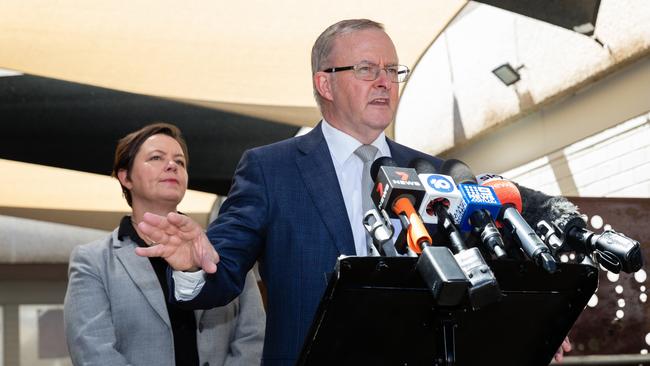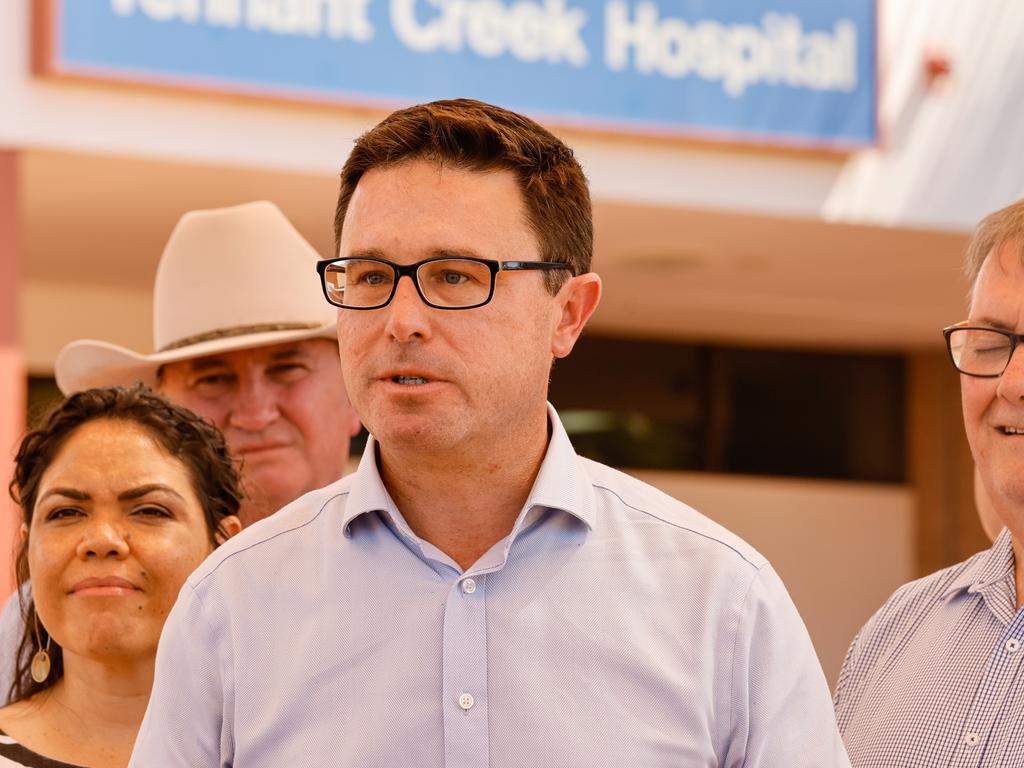
Politics has ruined national interest energy policy in Australia over the past 15 years. This applies at all levels – federal and state, Labor, Coalition and Greens – without exemption. And the current energy price spike means the true character of the Albanese government will be determined in the next few months.
There is no quick fix to the energy crisis. The government’s choice is stark and classic – between short-term, politically driven amelioration and the courage to avoid kneejerk responses by displaying long-run policy strength. So far the key ministers, Jim Chalmers, Madeleine King and Chris Bowen, have sent the right signals. But the pressure will become intense.
There is, however, another perspective – brutal adversity on the inflation and energy fronts is a golden opportunity for the new Labor government to display its mettle, change the mood and signal Australia has entered a new path.
Where has energy policy gone wrong? It’s a long story. Just try the failure years ago when the east coast LNG export market was developed without a domestic gas reservation policy along the lines now in Western Australia; or the political sabotage of the Turnbull government’s national energy guarantee; or the craven political buckling of state governments in their moratoriums against gas; or the failure of the country to align emissions and energy policy.
Let’s get three points clear now: this crisis is not the making of the newly elected Albanese government; there is no silver bullet for its solution; and we must avoid panicked government interventions facing a perfect storm.
Reserve Bank governor Philip Lowe named electricity and gas on Tuesday when increasing the cash rate to 0.85 per cent and signalling more interest rate rises are coming, with private sector economists expecting inflation to march towards 7 per cent. Tough times are coming. Labor needs to change the politics of energy in Australia.
The energy market is littered with phony solutions. Interviewed by this paper, King says it’s time post-election for Australian culture to move beyond ideological battles over energy sources. Asked if the climate wars are over, the new Resources Minister says: “I hope so. If they’re not, then we’re in another toxic mess.
“The climate wars, for want of a better term, over 15 or 20 years have led us to this point. We need a sensible plan of action that looks at all the energy mix. That will be a combination of fossil fuel energy, coal for the moment, certainly gas for some time, but importantly renewables and hydro. Pitting them against each other or turning this into a political football – which we have done for far too long – has led us to this situation.
“My starting point is that all of our energy mix must be in the plan for the future. As things fluctuate, you have outages. The question becomes: how do we back them up? It’s gas right now. Will it be renewables in the future? It will, provided there’s proper investment and the battery storage capacity is built up.
“I want to make it clear: this current crisis is not just about the gas companies. There are international factors at work, the Ukraine, but also the lack of coal-based energy transmission that is playing an enormous role in driving up the need for more gas.
“We need coal to be part of the immediate short-term answer. Manufacturers and consumers in NSW and Victoria need these coal power sources back online. Gas suppliers are already doing what they can. Gas is going to be a fundamental part of our transition to net zero. Labor has been saying this in opposition. We will continue to say it in government. Gas will be a very important part of our energy mix while we increase stability around renewables.”
King rejects talk of redirecting export gas contracts or pulling the so-called gas trigger – the Australian Domestic Gas Security Mechanism that forces gas exporters to divert supply to domestic users. The real value of the trigger lies not in its use but as a threat to bring all parties to the table and get concessions. Some gas has been redirected in recent days. The trigger has serious limitations and cannot be used until January 1.
“The Domestic Gas Security Mechanism is not the answer to the current problem,” King says. “I think everyone can now acknowledge that. In addition, it doesn’t matter how much gas you want to take from the export market if you don’t have the pipeline capacity to bring the gas south from Queensland.
“There are a number of gas developments that will increase supply for next winter but they still have to go through state-based approvals. The southern states of NSW, Victoria and South Australia need to have proximate gas sources. That just makes sense. I have no doubt their energy and resources ministers will be thinking about that issue.”
King says the gas sector in Australia is an international industry, from Gladstone and Curtis Island to Woodside’s Scarborough development. She says: “We need to respect our international partners and respect the role Australian gas will play in reducing the emissions of our regional neighbours and our partners like Japan and South Korea. Scarborough is enormously important. Woodside has international investors strong on their commitment to net zero at 2050 and they will need Australia’s gas and Scarborough’s gas to get there. Scarborough is the type of field Australia should be proud to make use of and contribute to the global push to net-zero emissions.”
Should the east coast duplicate the west’s gas reservation policy? King is unconvinced, given the east coast industry has been up and running for years. “It’s very difficult to reverse engineer a domestic gas reservation policy,” she says. “In hindsight, it might have been a better thing to do on the east coast, but reflecting on that doesn’t really help the current situation.”
The Albanese government faces a certain war with the left – Greens and some teals – demanding yet another ideological row over increasing Labor’s 43 per cent emission reduction target at 2030. Nothing could be more futile. Labor’s election mandate is 43 per cent and the message from the current crisis is the need for a consistent target and policy to get there.
Business Council of Australia chief executive Jennifer Westacott told this paper: “Having yet another political war over energy will just undermine good policy. We need more effort on gas supply, more firming up capacity through efforts of the Energy Security Board and accepting the new government’s approach to emission reduction instead of staging yet another ideological dispute about higher targets. We should remain open to shoring up supply for the domestic market and in the longer run every option should be on the table, including nuclear if the technology stacks up for Australia.”
Don’t expect Peter Dutton to endorse Labor’s 43 per cent target. But don’t expect the Coalition to ditch its net zero at 2050 pledge. Putting nuclear on the table for debate offers a deft Coalition political stance provided it doesn’t really believe nuclear will meet the affordability test.






